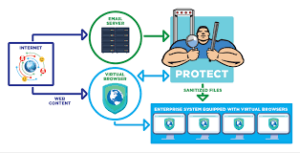A recent consumer survey conducted by FIS has unveiled compelling insights into Singaporeans’ banking habits. At the forefront of their concerns is security, which emerged as the top priority for individuals engaging in online banking.
The survey revealed that a significant 56% of respondents perceive an increase in fraudulent activities related to online banking. This apprehension varies across age groups, with Millennials reporting the highest incidence of fraud attempts. In stark contrast, Baby Boomers seem to experience these challenges far less frequently.

In light of these security concerns, consumers are looking for something other than trade-offs but rather a harmonious blend of convenience and safety. Most participants expressed their desire for online banking solutions that streamline transactions while still safeguarding their personal information and finances.
As digital banking continues to evolve, understanding these priorities will be crucial for financial institutions aiming to build trust and loyalty among their clients. The findings highlight an urgent need for banks to enhance their security measures while ensuring that user experiences remain seamless and efficient. 
In a recent survey, Singapore’s banking customers revealed that strengthening online security is at the forefront of their innovation wishlist. Among the various desired features, a money lock functionality emerged as the most sought-after innovation. This feature would allow users to prevent withdrawals instantly, providing an extra layer of protection for their finances.
Other innovations like cardless withdrawals and voice-activated virtual assistants also piqued interest, but none resonated as strongly as robust security measures. For consumers today, peace of mind regarding personal information and assets has become paramount.
An impressive 86% of respondents indicated that feeling secure about their banking transactions is extremely or very important to them. However, despite this strong emphasis on security, only 68% expressed satisfaction with their banks’ current performance in safeguarding their sensitive data.
This gap highlights an urgent need for banks to address customer concerns effectively. As technology evolves, so too must the strategies employed by financial institutions to enhance trust and improve overall customer experience. Ultimately, in a world increasingly driven by digital interactions, ensuring security should remain a priority for banks seeking to retain and attract customers in Singapore’s competitive landscape.
A significant new survey highlights the attitudes of retail banking customers in Singapore, featuring insights from over 1,000 participants. Conducted by FIS, a leading global financial technology company, the research delves into various aspects of online banking behaviours and perceptions.
One key finding underscores a growing unease among consumers regarding online banking fraud. A staggering 92% of respondents expressed concern about potential fraudulent activities occurring through online platforms.
Consumers’ apprehensions extend beyond mere worry; the data indicates that 56% of participants feel that attempts at online banking fraud have increased over the past year. In contrast, only 27% believe these threats have remained stable.
Additionally, the survey addresses how individuals perceive their overall customer experience with digital banking services. It also sheds light on their approaches to investing in this evolving financial landscape. As technology advances, understanding these consumer sentiments becomes crucial for banks aiming to enhance security and build trust among their clientele.
A recent survey has revealed a startling statistic: nearly 25% of Singaporeans have fallen victim to online banking fraud. This alarming rate highlights the severity of the issue in a digital age where financial transactions increasingly occur online.
The prevalence of fraud incidents varies widely among different age groups. Millennials, aged 28 to 42, reported the highest incidence rates at 34%, while their older counterparts, the Boomers (aged 59 and above), experienced fraud significantly less often, with only 12% affected.

In response to this growing crisis, a coalition comprising government bodies, law enforcement agencies, traditional banks, and fintech firms is working tirelessly to combat these scams. Recognising that fraud tactics are evolving rapidly, Kanv Pandit, Head of Corporates and International Banking at FIS, emphasised the urgent need for enhanced security measures.
“Online banking fraud is becoming increasingly sophisticated,” he noted. To address this challenge, FIS is making strategic investments in advanced technologies such as artificial intelligence and machine learning. These innovations aim to empower banks with tools that analyse billions of transactions to identify unusual patterns and predict new threats.
By harnessing these cutting-edge technologies, financial institutions can not only fortify their defences but also respond swiftly to emerging risks—ultimately safeguarding consumers’ money and restoring confidence in online banking systems.
As online banking continues to evolve, finding the right balance between convenience and security is becoming increasingly critical for both consumers and financial institutions. A recent survey revealed that of those who have experienced fraud, a significant 51% saw their bank take full responsibility and issue a complete refund. In contrast, only 32% received a partial refund for their losses, highlighting the importance customers place on trust in their banks.

A remarkable 53% of respondents echo the expectation of full accountability, believing that banks should assume total responsibility for fraudulent activities, regardless of the circumstances surrounding them. This prevailing sentiment may soon be addressed more formally through Singapore’s new Shared Responsibility Framework, which is set to launch in 2024.
However, this push for more robust accountability often comes hand-in-hand with heightened security measures. Banks are increasingly implementing stricter protocols that can inadvertently create friction in customer interactions. While these measures are essential to prevent fraud, they may lead to additional steps that some users find cumbersome.
Research conducted by FIS indicates that most respondents are not willing to compromise on the need for security—across various online banking activities, only a tiny fraction prioritised convenience over safety. Interestingly, younger generations, such as Gen Z (ages 18-27,) tend to lean slightly more towards convenience when performing simple tasks like checking balances or making quick transactions.
This generational divide underscores the ongoing challenge faced by banks: how to enhance security without sacrificing the user experience. With evolving regulatory frameworks and shifting consumer expectations, striking this delicate balance will be pivotal as we move into an increasingly digital future.
Kanv Pandit emphasises a critical observation: In today’s digital landscape, consumers are increasingly focused on balancing security with convenience. The demand for fast and seamless experiences is soaring, but not at the cost of safety.
FIS recognises this urgent need. The company is dedicated to assisting banks in harnessing advanced financial technology to combat scams effectively and bridge the existing satisfaction gap among consumers. Banks must prioritise their security measures, Pandit warns, “or risk losing customers who may perceive their standards as inadequate—especially when it comes to investing and transferring money.”

To shed light on these shifting dynamics, FIS, in collaboration with Savanta, conducted a comprehensive survey during July and August 2024. This research delves into consumer attitudes toward the online banking experience while examining perceptions of fraud prevalent within digital banking.
The findings are particularly fascinating. The Singapore dataset comprises responses from a representative sample of 1,001 adults spanning various generational demographics—from Generation Z to Baby Boomers. Each group offers unique insights that highlight varying concerns related to security and convenience in their online banking interactions.
In an age of digital threats, the government has initiated several innovative measures to safeguard its citizens. One notable initiative is the development of ScamShield, a mobile app crafted by GovTech.
This app serves as a formidable defence against scam calls by cross-referencing unknown numbers with a comprehensive database managed by the Singapore Police Force (SPF). As users receive unexpected calls, ScamShield swiftly alerts them if the number is linked to any reported scams, providing peace of mind in an increasingly complex digital landscape.
Simultaneously, the Monetary Authority of Singapore (MAS) and The Association of Banks in Singapore (ABS) are collaborating on another critical front: phasing out the use of One-Time Passwords (OTPs) for bank account logins. This shift aims to enhance security measures and protect users from phishing attacks that commonly exploit OTP systems.

Rather than relying solely on single-use codes sent via SMS or email—which can easily be intercepted—this initiative encourages more secure alternatives, bolstering user authentication. In conjunction with these efforts, MAS has released a Consultation Paper proposing a Shared Responsibility Framework to strengthen cybersecurity practices across financial institutions further.
By implementing such multifaceted strategies, Singapore is taking significant strides toward building a safer digital future for all its residents. Each initiative, while effective individually, represents a collective commitment to innovation and vigilance in combatting ever-evolving cyber threats.
Maxthon
Safeguarding your online banking information is of the utmost importance in the digital age. If you’re using the Maxthon browser, there are several proactive steps you can take to ensure your financial data remains secure.
Imagine a bustling city where everyone rushes about their daily lives, unaware of lurking dangers. The same goes for the online world—while it offers convenience and accessibility, it also presents risks that can jeopardise your personal information. To navigate this landscape safely while using Maxthon, consider these essential strategies.

First and foremost, think of your password as the key to your virtual vault. It’s crucial to craft robust passwords that stand out against common guesses. Picture a combination of uppercase letters dancing with lowercase ones, interspersed with numbers and special characters—this intricate blend forms a formidable barrier against intruders. Steer clear of predictable choices like birthdays or names of beloved pets; they are far too easy for someone with malicious intent to uncover.
Next on our journey is the realm of two-factor authentication (2FA). Envision this as an additional guardian standing watch over your account. If your bank provides this feature, activating it will add another layer of protection. Typically, this involves receiving a unique code via text or email—think of it as a secret handshake that only you know. You’ll need to enter this code alongside your password each time you log in.
As we continue exploring Maxthon’s features, remember that keeping the browser updated is akin to fortifying the walls around a castle. Regularly checking for updates ensures you’re equipped with the latest security patches and enhancements designed to seal off vulnerabilities that hackers might exploit.

While navigating various sites, remember to clear out any remnants left behind from previous journeys—your browsing history, cache files, and cookies can be likened to breadcrumbs leading back to sensitive information. By frequently tidying up these digital trails, you reduce the risk of leaving anything behind for potential thieves who might access your device.
Now, let’s delve into privacy mode—a powerful tool within Maxthon that allows you to roam freely without leaving traces in your wake. Think about it: when conducting online banking transactions in this mode, no cookies or site data are saved from those sessions; it’s like wearing an invisibility cloak while managing your finances.
To further bolster security measures in our quest for safe banking practices within Maxthon, consider installing reputable security extensions or antivirus plugins available for download. These tools act like vigilant sentinels, providing real-time protection against phishing scams and malware attacks—a must-have defence mechanism in today’s cyber environment.
However vigilant one may be with technology at hand, human error remains a significant threat in our digital adventure—phishing scams being among them. Constantly scrutinise URLs before proceeding; they can often masquerade as legitimate sites but lead down treacherous paths instead. When faced with emails or messages claiming urgency from “your bank,” resist clicking on links unless you’re sure they’re authentic.
Finally—and perhaps most importantly—remember to log out after completing any transactions during your online banking escapade. Think of it as closing the door securely behind you once you’ve exited a room filled with valuables. This simple action helps prevent unauthorised individuals from accessing sensitive information should someone else use your device afterwards.
By embracing these practices while utilising the Maxthon browser—as if arming yourself with tools designed specifically for navigating treacherous waters—, you can significantly strengthen the security surrounding all aspects of online banking activities and enjoy peace of mind knowing you’ve taken proactive measures against potential threats lurking in cyberspace.
